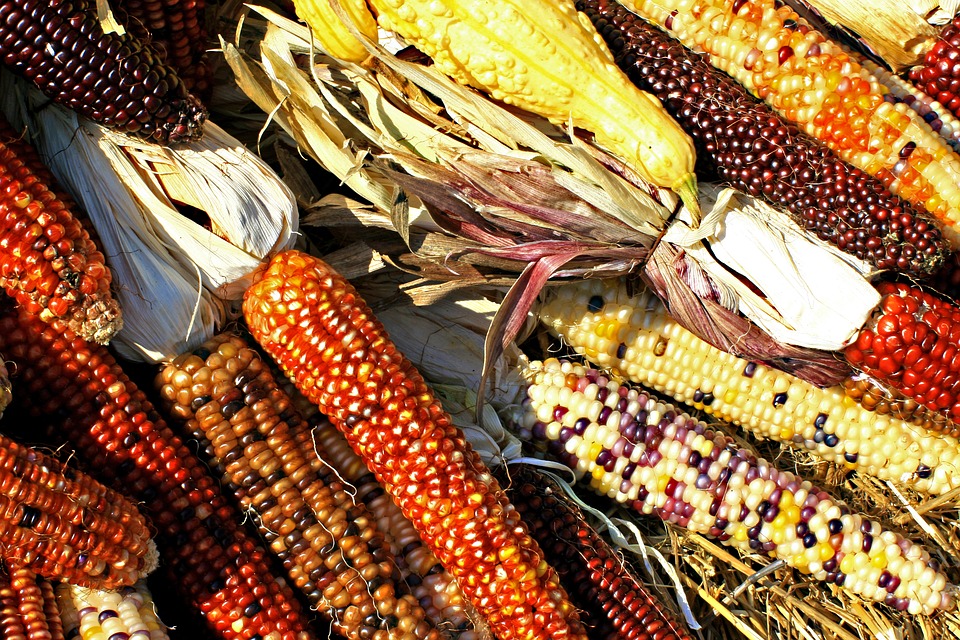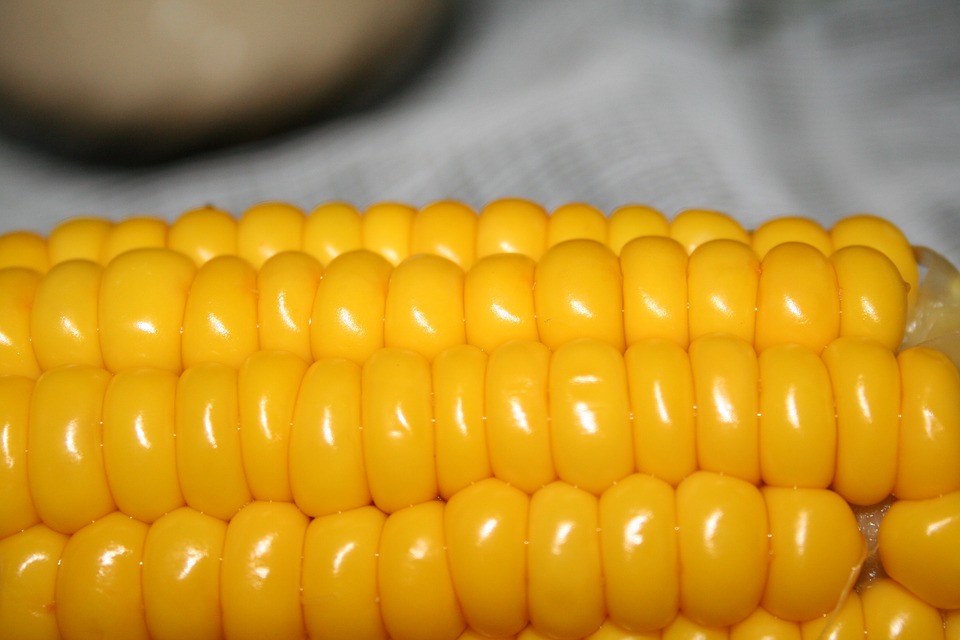This comprehensive guide explores the intricate relationship between rabbits and corn, offering a detailed understanding of whether rabbits can eat corn, the potential risks involved, and safe ways to incorporate it into their diet. We'll delve into the nutritional composition of corn and its impact on rabbit health, as well as providing practical tips for feeding your furry friend.
Part 1: Understanding the Dietary Needs of Rabbits

1.1. The Importance of a Herbivorous Diet
Rabbits are obligate herbivores, meaning their digestive systems are entirely adapted to processing plant-based foods. Their bodies are not designed to break down animal proteins or complex carbohydrates, making them uniquely sensitive to certain foods.
1.2. The Role of Fibre in Rabbit Digestion
Fibre is the cornerstone of a rabbit's diet. It forms the bulk of their food, stimulating the digestive system and promoting healthy bowel movements. Fibre also helps regulate blood sugar levels, preventing obesity and other health issues.
1.3. The Importance of Hay
High-quality hay, such as Timothy hay, should constitute the majority of a rabbit's diet. It provides essential fibre, essential vitamins and minerals, and helps to wear down their constantly growing teeth.
1.4. The Value of Fresh Vegetables
Fresh vegetables are crucial for providing vitamins, minerals, and hydration. Choose a variety of leafy greens, like romaine lettuce, spinach, and kale, as well as other options like bell peppers, carrots, and broccoli.
1.5. The Role of Pellets
Pellets can be used as a supplemental food source, providing a balanced mix of vitamins and minerals. However, they should not be the primary food source and should be offered in limited quantities.
Part 2: The Nutritional Composition of Corn

2.1. Corn: A High-Carb, Low-Fibre Grain
Corn is a cereal grain known for its high carbohydrate content, particularly starch. While it contains some vitamins and minerals, including vitamin B6, niacin, and magnesium, its low fibre content makes it unsuitable for rabbits.
2.2. The Impact of Starch on Rabbit Digestion
The high starch content in corn can cause problems for rabbits, particularly in their digestive system. Starch is fermented by bacteria in the gut, leading to gas, bloating, and diarrhoea.
2.3. The Potential for Dental Issues
Lack of fibre can lead to dental problems in rabbits. Fibre helps to naturally wear down their constantly growing teeth, preventing overgrowth and painful dental complications.
Part 3: Can Rabbits Eat Corn? The Verdict
3.1. The General Consensus: Corn is Not Recommended
Due to the potential health risks associated with corn consumption, it is generally advised to avoid feeding it to rabbits. Their digestive systems are not equipped to process high amounts of starch and low fibre.
3.2. Exceptions to the Rule: Limited and Controlled Intake
There are some rare exceptions where a tiny amount of corn might be considered:
- Occasional Treats: A very small amount of cooked corn on the cob, with the kernels removed, can be offered as an occasional treat. However, this should be done with extreme caution and in moderation.
- Special Dietary Needs: In cases of weight loss or specific medical conditions, a veterinarian might recommend a small amount of corn as a supplement. However, this should only be done under professional guidance.
Part 4: Understanding the Risks of Feeding Corn to Rabbits
4.1. Digestive Upset and Gastrointestinal Issues
The high starch content in corn can lead to fermentation in the rabbit's gut, causing discomfort, bloating, gas, and diarrhoea. This can lead to dehydration and even more serious health complications.
4.2. Dental Problems
Corn's lack of fibre can contribute to overgrown teeth, as it does not provide the necessary abrasive action to wear them down. This can lead to pain, chewing difficulties, and even infection.
4.3. Obesity and Weight Gain
Corn is high in calories and can contribute to weight gain, particularly when consumed regularly. This can lead to a range of health problems, including joint issues, heart disease, and liver problems.
4.4. The Risk of Choking
Corn kernels can be a choking hazard, particularly for smaller rabbits. Even cooked corn kernels can be difficult to digest and can cause blockages in the digestive tract.
Part 5: Safe Alternatives to Corn
5.1. Focus on Fibre-Rich Forage
Hay should form the cornerstone of a rabbit's diet. Choose high-quality Timothy hay, Alfalfa hay (for younger rabbits), or a blend of various hays. Ensure the hay is fresh, free of dust, and available at all times.
5.2. Fresh Vegetables for Nutritional Variety
Offer a variety of fresh, leafy green vegetables as a source of vitamins and minerals. Ensure the vegetables are washed thoroughly and free of pesticides.
5.3. Safe Treat Options
Treats should be given in moderation and should be chosen carefully. Some safe options include:
- Fresh herbs: Parsley, cilantro, basil, and mint
- Banana pieces: In very small amounts, as a high-sugar treat
- Small pieces of apple or pear: With the core and seeds removed
- Dandelion greens: A good source of vitamins and minerals
Part 6: The Importance of Moderation and Variety
6.1. Restricting Treat Consumption
Treats should be offered in moderation, representing only a tiny fraction of a rabbit's daily food intake.
6.2. Variety is Key
Providing a varied diet of fresh vegetables and high-quality hay will ensure your rabbit receives all the essential nutrients they need.
6.3. The Importance of Fresh Water
Fresh, clean water should be available at all times. Rabbits can become dehydrated quickly, so it's crucial to ensure they have access to a constant supply of water.
Part 7: FAQs: Answering Common Questions
7.1. Can Rabbits Eat Popcorn?
Popcorn is not recommended for rabbits. It contains high amounts of starch and can be a choking hazard. The kernels can also get stuck in the rabbit's digestive tract, leading to blockages and complications.
7.2. Can Rabbits Eat Corn on the Cob?
While a small amount of cooked corn on the cob, with the kernels removed, can be an occasional treat, it's generally not advised to feed corn on the cob due to the risk of choking. The cob itself is not digestible by rabbits and can cause digestive problems.
7.3. Can Rabbits Eat Corn Husks?
Corn husks are not digestible by rabbits and can cause digestive problems. They can also be a choking hazard.
7.4. What Other Grains are Safe for Rabbits?
Grains should be avoided in a rabbit's diet. The primary focus should be on high-fibre forage, fresh vegetables, and a limited amount of formulated pellets.
7.5. Can I Feed My Rabbit Cornmeal?
Cornmeal is high in starch and can cause digestive upset in rabbits. It's best to avoid it altogether.
7.6. How Much Corn is Too Much for a Rabbit?
Even small amounts of corn can be problematic for a rabbit's digestive system. It's best to avoid corn entirely, or only offer it as an extremely occasional treat.
Part 8: Consult Your Veterinarian for Personalized Guidance
Always consult with your veterinarian for personalized advice on your rabbit's diet. They can provide guidance tailored to your rabbit's age, breed, and health status. They can also recommend appropriate supplements and address any specific dietary needs.
Part 9: Recognizing Signs of Digestive Problems
It's important to be aware of signs of digestive problems in rabbits. These can include:
- Diarrhoea
- Constipation
- Loss of appetite
- Lethargy
- Bloating
- Gas
If you notice any of these signs, it's important to contact your veterinarian immediately.
Part 10: Building a Healthy Relationship with Your Bunny
Feeding your rabbit a healthy diet is a key part of building a healthy relationship with your pet. By providing them with the right food and ensuring they have access to fresh water, you can help them live a long and happy life.
Everyone is watching
-

Do Rabbits Lay Eggs? (The Surprising Truth)
OTHER TYPES OF PETSThis article will unravel the common misconception that rabbits lay eggs, exploring the fascinating world of r...
-

What's a Group of Rabbits Called? (A Comprehensive Guide)
OTHER TYPES OF PETSThis article delves into the fascinating world of rabbits, exploring the various terms used to describe a grou...
-

Can Rabbits Eat Grapes? A Guide to Safe Rabbit Treats
OTHER TYPES OF PETSThis comprehensive guide will explore the safety and suitability of grapes for rabbits, providing detailed inf...
-

Predators That Hunt Rabbits: A Guide to Natural Enemies
OTHER TYPES OF PETSI've always been fascinated by the circle of life, that delicate dance between predator and prey. Growing up ...
-

Are Rabbits Nocturnal Animals?
OTHER TYPES OF PETSThe question of whether rabbits are nocturnal animals is a fascinating one, with a surprisingly complex answer...
